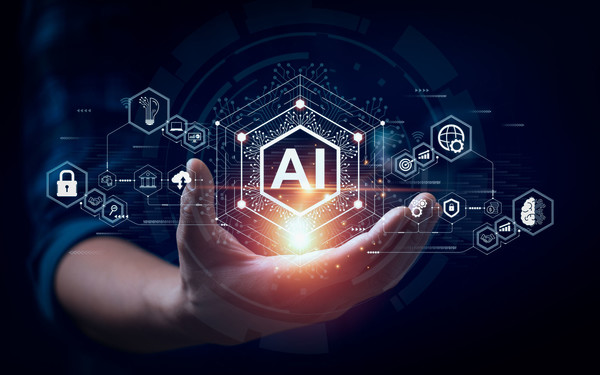Industry and the challenge of artificial intelligence
Artificial intelligence will without question be the most important area of technological development over the new year. In 2023, the various applications of this new technology dominated social media and entertainment and were also widely adopted in industrial contexts.
The current state of play marks the culmination of a multi-year trend in which vision and control systems have led to more integrated production lines incorporating AI systems. Companies operating in manufacturing industries now have little choice but to embrace this new revolution.
“The fact that digitalisation is paving the way for automatic data analysis and understanding is of particular significance” said Professor Rita Cucchiara from the Department of Engineering at the University of Modena and Reggio Emilia, a leading expert in the field.
Speaking at a conference co-organised recently by Acimac together with Amaplast and Ucima and entitled The digital revolution necessary for manufacturing, she argued that machinery and technology producers must harness their enormous volumes of available data to gain a better understanding of their entire production pipeline and supply chain, thereby optimising their investments in terms of both economics and environmental impact.
“The global scenario is highly complex and diversified,” she said. “We have the good fortune to have access to increasingly advanced tools, which have rapidly become essential in terms of business competitiveness.”

During the conference, Andrea Venegoni, Director of the Research & Studies for Business Division at the LIUC Business School, discussed the topic in greater detail and focused in particular on the direct consequences for businesses. Artificial intelligence is not only relevant to a company’s core business, he explained, but essentially affects four different areas: products, processes, organisation and sales.
“Firstly, all products linked up to software have become smarter in recent years and now incorporate new features that enhance their sophistication, interest and appeal to both consumers and B2B companies,” he said. “Secondly, innovation in digitalisation is making industrial processes more efficient and helping companies achieve the sustainability goals set out in the 2030 Agenda for sustainable development.
But it is the field of organisation that is proving most controversial as AI transforms the paradigms of personnel management. Ever since the first industrial revolution, every transition or major step forward in technology has brought with it contradictions, ethical dilemmas and social unrest. The first question that people always ask is: “Will machines replace human jobs?” With three industrial revolutions behind us, the answer so far has always been no. Despite a short-term substitution effect, historical evidence suggests that in the long run technological changes always generate more jobs than they eliminate. We currently find ourselves in the short-term transition phase characterised by a degree of friction between workers and machines and the need to balance the conflicting requirements of companies and of the professionals capable of managing this change. We need to get past this stage as quickly as possible, in no small part through continuous training and investments in improving the knowledge and skills of corporate professionals.
Last but not least, artificial intelligence can help to significantly improve sales activities by designing new ways of offering products, refining product concepts and exploring markets and prospects more effectively” Venegoni concluded.
The new and highly complex software covers all business areas and poses a significant challenge in terms of its management, especially during the initial stages. This is largely down to the sheer pace of the changes involved. Speaking at an event entitled Connected Machines, Federico Milan, head of the digital business unit of a company that designs and manufactures state-of-the-art industrial equipment and software, commented:
“The services provided by OpenAI began to be widely adopted In July 2022, followed just four months later, in November 2022, by the launch of ChatGPT. The world is now operating according to an exponential principle. Technological innovations go well beyond anything we can currently imagine. To navigate these changes, we will need to transform our mindset and begin to think in terms of powers (1, 2, 4, 16, 256, etc.) rather than linearly (1, 2, 4, 8, etc.). Instead of giving in to fear or hesitation, we must exploit these innovations to help us in our work. If we look at artificial intelligence in terms of the benefits it can offer mankind, new technologies will always help us improve and gain greater awareness of our tasks. AI systems are already playing a pivotal role by providing greater quantities of information, enabling us to make informed production decisions and to use the knowledge we have gained to improve industrial processes, human-machine and human-human interactions, and consequently the social context.”

